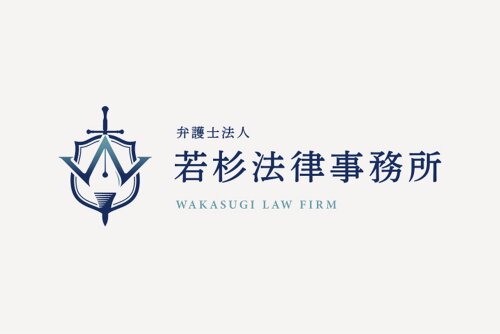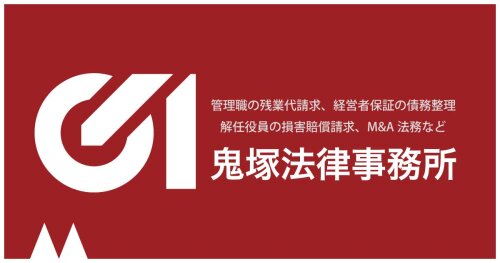Best Private Equity Lawyers in Fukuoka
Share your needs with us, get contacted by law firms.
Free. Takes 2 min.
List of the best lawyers in Fukuoka, Japan
About Private Equity Law in Fukuoka, Japan
Private equity involves investment in privately held companies or buyouts of public companies, resulting in their delisting. In Fukuoka, Japan, private equity activity has been growing due to both domestic and international interest. Fukuoka's strategic location and vibrant startup ecosystem make it an attractive destination for private equity transactions in sectors such as technology, healthcare, and manufacturing. The legal framework is governed by a mix of national legislation and local regulations, making experienced legal guidance essential for investors and companies alike.
Why You May Need a Lawyer
Seeking advice from a lawyer qualified in private equity law in Fukuoka can be crucial in the following situations:
- You are considering investing in a private company or a growth startup in Fukuoka.
- You are raising capital for your business and need to draft or negotiate investment agreements.
- Your company is involved in a merger, acquisition, or management buyout.
- You require due diligence to assess the legal and financial health of a target company.
- You need advice on regulatory compliance, licensing, or cross-border investment procedures.
- You are dealing with disputes between investors, founders, or stakeholders.
- You need help structuring a private equity fund within Japanese legal requirements.
Legal professionals provide clarity, reduce risk, and help ensure that transactions comply with local and national laws.
Local Laws Overview
Private equity activities in Fukuoka are primarily regulated by laws and regulations at the national level, including the Financial Instruments and Exchange Act (FIEA), the Companies Act, and the Act on Investment Trusts and Investment Corporations. Fukuoka's local business climate is influenced by these laws and is also shaped by regional government initiatives that encourage innovation and overseas investment.
- Licensing and Registration: Fund managers and investment advisors may need registration with the Financial Services Agency (FSA).
- Foreign Investment: The Foreign Exchange and Foreign Trade Act (FEFTA) governs foreign participation, sometimes requiring approval or notification before investment.
- Company Law Compliance: Corporate governance, minority shareholder protections, and reporting obligations must be adhered to in transactions.
- Tax Considerations: Taxation on capital gains, dividends, and structuring issues are important factors.
- Local Approvals: Certain industries may require additional local or national government clearances, such as healthcare or infrastructure.
Each private equity transaction is unique, so understanding how these laws apply in Fukuoka is essential for smooth deal execution.
Frequently Asked Questions
What is private equity and how does it differ from venture capital?
Private equity refers to investment in established companies through buyouts or strategic investments, often involving significant control and management participation. Venture capital specializes in funding early stage or growth startups, usually for minority stakes.
Do I need a license to manage a private equity fund in Fukuoka?
Yes, in most cases, fund managers require registration with the Financial Services Agency under the FIEA. Exemptions exist for small, limited-scope funds, but all structures must comply with regulations.
Can foreign investors participate in private equity deals in Fukuoka?
Foreign investors are welcome but may need to file notifications or gain approvals under the Foreign Exchange and Foreign Trade Act, especially regarding restricted industries. Legal advice ensures compliance and smoother transactions.
What are the typical stages of a private equity transaction in Japan?
Key stages include initial negotiation, legal and financial due diligence, drafting and signing of contracts, deal closing, and post-acquisition management and compliance.
How is due diligence conducted in private equity deals?
Due diligence involves reviewing the target company’s financials, legal obligations, intellectual property, contracts, regulatory compliance, and potential liabilities. Lawyers coordinate with accountants and other professionals during this process.
What are common legal risks in private equity investments?
Risks include breach of warranties, undisclosed liabilities, minority shareholder disputes, regulatory non-compliance, and taxation errors. Engaging a lawyer helps identify and mitigate these risks.
How does corporate governance impact private equity in Fukuoka?
Investments must comply with the Companies Act, which sets rules for board structure, shareholder rights, and disclosure. Good governance enhances deal value and reduces legal issues.
Are there any specific tax considerations for private equity in Japan?
Yes. Corporate tax, capital gains tax, and withholding tax may apply, depending on the deal structure and investor status. Consulting a tax or legal advisor ensures optimum planning.
What industries in Fukuoka are popular for private equity investment?
Technology, healthcare, renewable energy, and advanced manufacturing attract significant private equity activity in Fukuoka due to local innovation and government support.
How do I resolve disputes related to private equity transactions?
Disputes are typically resolved through negotiation, mediation, or arbitration as outlined in contracts. Japanese courts can also adjudicate matters if necessary, but out-of-court settlement is common.
Additional Resources
If you require further information or assistance regarding private equity in Fukuoka, the following organizations can be helpful:
- Fukuoka Prefectural Government - Business Support
- Japan External Trade Organization (JETRO) Fukuoka
- Financial Services Agency (FSA)
- Japan Venture Capital Association (JVCA)
- Japan Private Equity Association (JPEA)
- Local Bar Associations and Certified Public Tax Accountants’ Associations
These organizations offer guidance, resources, networking, and regulatory information for both investors and businesses.
Next Steps
If you are seeking legal assistance in private equity in Fukuoka, consider the following steps:
- Clearly define your objectives and gather relevant documents regarding your intended investment or transaction.
- Research and contact law firms or legal professionals in Fukuoka with experience in private equity matters.
- Prepare a list of questions or concerns to ensure you cover all necessary topics during your consultation.
- Discuss costs, timelines, and required documentation upfront to understand the process and expectations.
- Stay informed about legal and regulatory developments that may affect your transaction or investment.
Working with knowledgeable local legal counsel can help you navigate the complexities of private equity law in Fukuoka and successfully achieve your investment or business goals.
Lawzana helps you find the best lawyers and law firms in Fukuoka through a curated and pre-screened list of qualified legal professionals. Our platform offers rankings and detailed profiles of attorneys and law firms, allowing you to compare based on practice areas, including Private Equity, experience, and client feedback.
Each profile includes a description of the firm's areas of practice, client reviews, team members and partners, year of establishment, spoken languages, office locations, contact information, social media presence, and any published articles or resources. Most firms on our platform speak English and are experienced in both local and international legal matters.
Get a quote from top-rated law firms in Fukuoka, Japan — quickly, securely, and without unnecessary hassle.
Disclaimer:
The information provided on this page is for general informational purposes only and does not constitute legal advice. While we strive to ensure the accuracy and relevance of the content, legal information may change over time, and interpretations of the law can vary. You should always consult with a qualified legal professional for advice specific to your situation.
We disclaim all liability for actions taken or not taken based on the content of this page. If you believe any information is incorrect or outdated, please contact us, and we will review and update it where appropriate.














